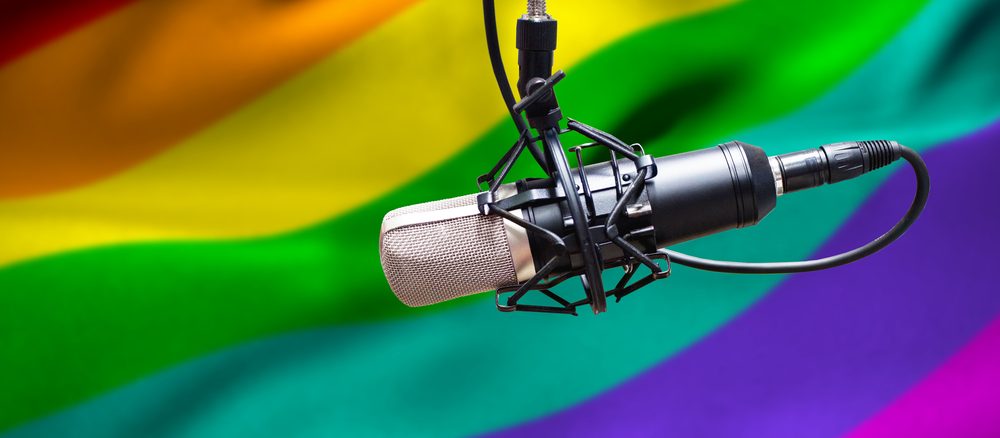MEDIA DISCOURSE ANALYSIS AROUND PRIDE PARADES
June 27, 2023
Why is the fight for human rights a trigger for hate speech in the Western Balkans?
KOSOVO
The patriarchal society in Kosovo does not accept the LGBTQ+ community, considering them as sick individuals, mentally ill, destroyers of families and humanity, and deeming them unfit to be part of Kosovar society. Comments reflecting these views can be found on social media platforms whenever the LGBTQ+ community is mentioned.
Although media coverage is to a large percent professional, when reporting on this community, media outlets fail to filter the hate speech present in comments on their social media networks. The issue lies in the fact that media outlets only focus on reporting the LGBTQ+ community’s challenges, such as their safety, employment, education, and equal treatment in society, during events like the International Day Against Homophobia, Biphobia, and Transphobia, as well as the Pride Parade and Pride Week. Media outlets make no effort to address the lack of recognition, misunderstandings, and non-acceptance of the LGBTQ+ community, thereby missing the opportunity to challenge the language of hatred.
According to a 2020 survey conducted by the National Democratic Institute of Kosovo (NDI), only three percent of respondents would support their child if they identified as a member of the LGBTQ+ community. The survey further revealed that 97 percent of respondents would not allow their child to remain in the family, resorting to violence or attempting to “cure” them.
The Assembly of Kosovo’s deputies have twice failed to approve the Civil Code, which would enable civil unions between individuals of the same sex. Some MPs cited their voters and religious beliefs as reasons for their opposition to such legislation.
Prime Minister Albin Kurti recently participated in the Pride Parade and voiced his disapproval of the discriminatory attitudes towards the LGBTQ+ community, pledging to take all necessary steps to pass the Civil Code in the Assembly of Kosovo. In response, several commentators on social networks threatened to withdraw their support for him and his party.
Media outlets often, perhaps inadvertently, contribute to the creation of virtual spaces on their social networks that foster intolerance towards any form of diversity in Kosovar society, including the LGBTQ+ community. Unfortunately, such instances are frequently not reported to organisations responsible for upholding media ethics.
NORTH MACEDONIA
The Skopje Pride Weekend, a celebration of diversity and acceptance, has unfortunately become a platform for widespread hate speech against the LGBTQ+ community in North Macedonia. Digital rights violations spiked during this period, with the online discourse often crossing the line from debate into hate speech and incitement to violence.
This hatred is not limited to a single event but reflects the broader societal attitude towards the LGBTQ+ community in the country. Homophobic and transphobic rhetoric often portrays the LGBTQ+ community as a threat to traditional values, spinning a narrative that places this marginalized group as a powerful entity imposing its values on the majority.
In the past years, counter parades were held in Skopje and Bitola in response to the Pride events, which used the pretence of protecting “family values” to harbor and express homophobic, biphobic, and transphobic sentiments. These events, particularly the larger counter parade in Bitola, demonstrate that a significant portion of the society remains unaccepting of the LGBTQ+ community.
The internet has made it easier for hate speech to proliferate. Social media platforms, such as Facebook, are being used by groups like the “Od nas za nas” association to spread homophobic and transphobic misinformation. Notably, the Coalition for the Protection of Children, of which “Od nas za nas” is a part, has been actively disseminating homo/bi/transphobic content, casting the LGBTQ+ community as a threat to children.
In one particularly egregious incident several months ago, Dejan Slamkov, a young LGBTQ+ rights activist, was targeted with hate speech over a bench painted in the colors of the rainbow in his native village. The online abuse escalated to direct threats against Slamkov’s life, showing how deep-seated and personal these prejudices can be.
Despite these challenges, the LGBTQ+ community continues to fight for their rights, pushing back against hate speech and working towards a more inclusive society.
BOSNIA AND HERZEGOVINA
Mainstream media in Bosnia and Herzegovina reported on the upcoming parade mainly in the form of an announcement that the parade will be held in Sarajevo on June 24. The announcement of the organising committee was most often reported, but the media rarely explained what the parade represents and why it is significant.
However, even then there were accidental or deliberate distortions, such as the headline on Klix.ba, which reads:

Although only one part of the traffic was disrupted due to the parade and only during a limited part of the day, this headline spread disinformation, which, of course, caused an avalanche of negative comments.
The rhetoric that the Pride Parade is an act of whim persisted in the media sphere from the previous year.
Another harmful narrative publicly present is the one that portrays the LGTBQ+ community as sexually deviant and pedophilic.
CONCLUSION
Pride parade is a protest for basic human rights, which the LGBTQ+ community doesn’t have guaranteed in most of the Western Balkans’ countries. This event aims to raise awareness and remind general public of the diversity our society needs to be proud of. A pride parade is definitely not a call for hate speech against its participants nor the LGBTQ+ community in general.
According to RDN media monitoring data the third most common targeted groups in the region are sexual minorities. The main triggers of incidents which were detected during the research, are mostly connected to initiatives which aim to improve the rights of LGBTQ+ community in the region.
